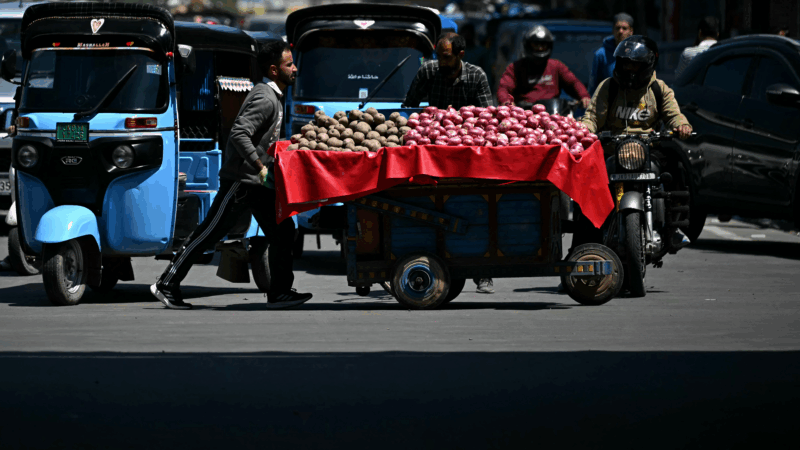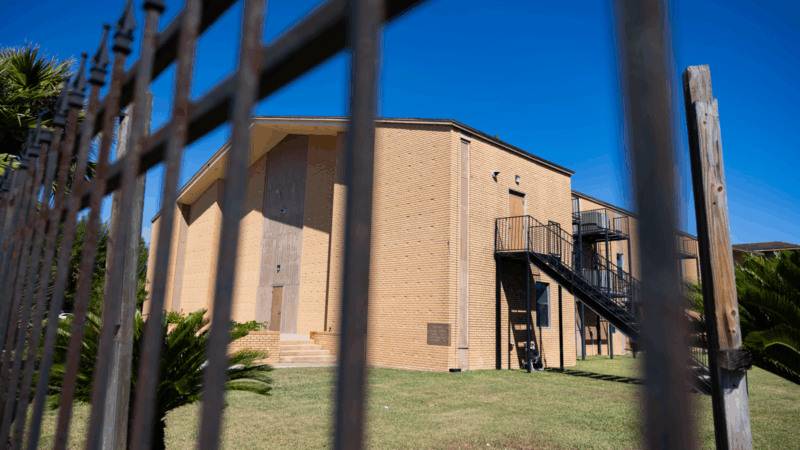India-Pakistan ceasefire holds for a 2nd day
JAMMU, India — On Monday, children returned to school, airports reopened across border areas of India and Pakistan and families mourned their dead as a ceasefire announced Saturday by President Trump held for the second day.
The ceasefire has halted what some analysts say was the most serious fighting between the two countries since they went to war in 1971, with India’s strikes reaching the outskirts of the Pakistani capital Islamabad, and an airbase in Pakistan’s second largest city, Lahore.
The fighting began last Wednesday, when India struck multiple targets in Pakistan. Indian authorities said this was in retribution for a militant attack that killed 26 people, mostly tourists, in India-administered Kashmir on April 22. Eyewitnesses said some of the gunmen targeted Hindu men, drawing rage across Hindu-majority India.
India blamed Pakistan, which denied any connection to the attack and demanded India show evidence of its claim. Asked repeatedly about that evidence, India’s Ambassador to the United States Vinay Kwatra told NPR last week that it would come out “in fullness of time.”
The ceasefire has not affected other measures that India announced after the late-April attack — most importantly, its suspension of a water treaty that divides six South Asian rivers between it and Pakistan. Pakistan’s United Nations Ambassador Asim Iftikhar Ahmad described the treaty’s suspension as “an existential threat” to his country’s people.
On Monday evening, Indian Prime Minister Narendra Modi seemed to rule out the possibility of discussions on the water treaty, saying any talks with Pakistan would focus only on Kashmir and terrorism.
“Water and blood cannot flow together,” he said in a televised address to Indians. “If there are talks with Pakistan, it will be only on terrorism; and if there are talks with Pakistan, it will be only on Pakistan-occupied Kashmir,” he said.

Officials in India and Pakistan celebrated the ceasefire, each insisting it was the other side that called for a halt to fire. Talks between the Indian and Pakistani directors-general of military operations were held on Monday to ensure commitment to the ceasefire, the Indian defense ministry said in a statement.
Civilians in both countries welcomed the stop in fighting. “The ceasefire brings that sigh of relief,” said 34-year-old Babar Rashid, who lives in Bahawalpur, a Pakistani city some 90 miles from the Indian border. India struck the city’s outskirts last Wednesday, saying it was targeting terrorists there. Rashid said he was pleased that Pakistan managed, in his view, to bloody India’s nose. Now, he warned, India ‘”should not make any kind of misadventure.”
Indian authorities say India’s military has killed 100 “terrorists” in Pakistan. Dozens of civilians were killed between last Wednesday and Saturday in the tit-for-tat strikes between India and Pakistan, according to death tolls given by both countries.
In the town of Poonch in India-administered Kashmir, the dead include 13-year-old twins Zain Ali and Urwa Fatima.
Sarfaraz Ahmad Mir, a cousin of the twins, said the family had moved to Poonch three months ago, for the schools. He said his uncle, the children’s father, was also seriously wounded. Mir’s aunt, the twins’ mother, did not have the heart to tell her husband that their children had been killed. “He doesn’t even know that there’s a ceasefire,” Mir said. When his aunt visits her husband in the hospital, “she tells him that the children are at home. And when she leaves the room, she cries, she remembers those children.”
Most of the casualties on both sides were residents of Kashmir, the Himalayan territory divided between and disputed by Pakistan and India. Both countries claim the entire region. Thousands have either left there or fled as far as possible from the Line of Control, the de facto border that divides Kashmir.
On the Indian side, a few dozen ended up sheltering in an ashram on the outskirts of Jammu, a city in Indian-administered Kashmir. Women hunkered in a bare basement; men hunkered in a bare prayer hall. Many of the displaced were farmers from a village called Pargwal, near the de-facto border.
Jamail Kumar, 32, said when the firing started the previous week, some residents jumped into irrigation canals until local officials arranged buses for them to escape the village. “Even then, there were bullets whizzing past us,” he said. Despite the ceasefire, residents said they weren’t sure it was safe yet to return.

In Pakistan-administered Kashmir, Sikander Hayat Janjua, 54, emerged Saturday from his bunker in his village of Nikyal, barely a thousand feet from the Line of Control. “We were in distress for days,” he said — unable to fetch water, feed livestock or let their children play in the sun.
“We want this ceasefire to last forever,” Janjua said. “Those who celebrate war, on both sides, are illiterate,” he said, using a word sometimes referring pejoratively in Pakistan to a stupid person.
Both India and Pakistan claimed they had hit sensitive military targets, and both sides confirmed the loss of some military personnel.
India claimed to have struck several Pakistani air bases, including one in a military garrison near the capital city Islamabad. Multiple eyewitnesses confirmed the last strike to NPR, as did the Pakistani defense minister Khawaja Asif, who said only a vehicle was hit.
Pakistan claims it shot down five Indian aircraft, including at least one French-made fighter jet, the Rafale. India has not commented on those claims. When questioned on Sunday about them, Air Marshal A.K. Bharti responded at a press briefing by saying, “Losses are a part of combat.”
With additional reporting by Betsy Joles in Lahore, Pakistan, and Diaa Hadid in Mumbai, India. Kuchay reported from Srinagar, India.
Voting nears to a close in Texas primary that may be crucial to control of the Senate
The GOP and Democratic primaries mark a potential litmus test for what direction base voters want their parties to go ahead of midterm elections this fall that will determine power in Congress.
Pregnant migrant girls are being sent to a Texas shelter flagged as medically risky
Government officials and advocates for the children worry the goal is to concentrate them in Texas, where abortion is banned.
The 2026 World Cup faces big challenges with only 100 days to go
Will Iran compete? Will violence in Mexico flare up? And what about funding for host cities in the U.S.? With only 100 days left before it beings, the 2026 World Cup in North America is facing a lot of uncertainty.
A glimpse of Iran, through the eyes of its artists and journalists
Understanding one of the world's oldest civilizations can't be achieved through a single film or book. But recent works of literature, journalism, music and film by Iranians are a powerful starting point.
Mitski comes undone
She may be indie rock's queen of precisely rendered emotion, but on Mitski's latest album, Nothing's About to Happen to Me, warped perspectives, questionable motives and possible hauntings abound.
This quiet epic is the top-grossing Japanese live action film of all time
The Oscar-nominated Kokuho tells a compelling story about friendship, the weight of history and the torturous road to becoming a star in Japan's Kabuki theater.







